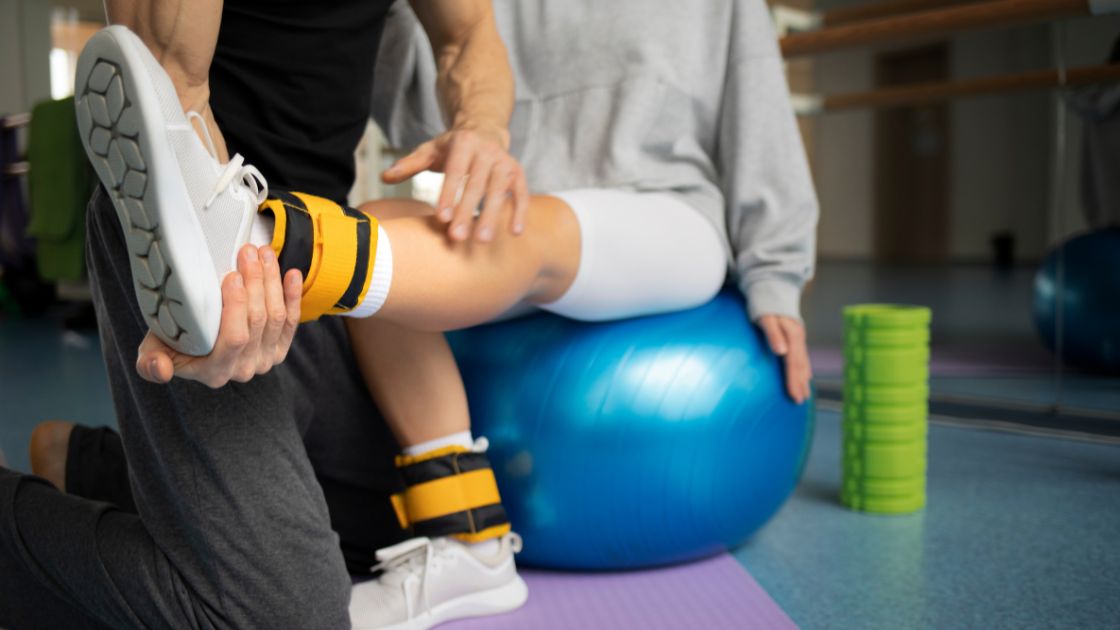Sports-related injuries can have a profound impact on athletes’ physical and mental well-being. A study in the Journal of Orthopaedic & Sports Physical Therapy revealed that implementing a structured rehabilitation program led to a 50% reduction in the risk of reinjury among athletes recovering from sports injuries. This underscores the importance of Sports Injury Medicine & Treatment in not only aiding athletes in their recovery but also in minimizing the likelihood of future setbacks.
These injuries, ranging from sprained ankles to torn ligaments and stress fractures, can disrupt training schedules, hinder performance, and have long-term consequences if not properly addressed.
However, with the right strategies for healing and rehabilitation, athletes can navigate the recovery process and return to their sport stronger than before. In this blog post, we’ll explore the importance of sports physiotherapy, advice for preventing sports injuries, effective sports injury treatments, and common types of sports injuries.
Sports Physiotherapy: Empowering Athletes on the Road to Recovery
What is Sports Physiotherapy?
Sports physiotherapy focuses on preventing, diagnosing, and treating sports-related injuries. Highly skilled sports physiotherapists specialize in treating musculoskeletal injuries and guiding athletes toward complete physical recovery.
The Importance of Early Intervention
Early intervention from a qualified sports physiotherapist is crucial for effective recovery. Prompt assessment and treatment can determine the injury’s severity, address pain and inflammation, and prevent complications. Sports physiotherapists develop personalized rehabilitation programs tailored to each athlete’s needs and goals.
Techniques Used in Sports Physiotherapy
Sports physiotherapy utilizes various techniques to facilitate healing and rehabilitation. These may include manual therapy, therapeutic exercises, and modalities like heat and ice to manage pain and promote tissue healing.
Preventing Sports Injuries: Building a Strong Foundation
Importance of Warm-up and Cool-down Routines
Proper warm-up and cool-down routines are essential for injury prevention. Dynamic warm-ups increase body temperature and improve blood flow, while cool-down exercises reduce muscle soreness and stiffness.
Stretching and Flexibility Training
Incorporating stretching exercises into training routines enhances flexibility, joint range of motion, and muscle function, reducing the risk of strains and promoting recovery.
Sports-Specific Training and Conditioning
Tailored training programs address the specific demands of each sport, including strength training, agility drills, and cardiovascular conditioning, to improve overall fitness and reduce injury risk.
Importance of Protective Gear and Safe Playing Environments
Wearing appropriate protective gear and ensuring safe playing environments minimize the risk of injuries in high-risk sports.
Sports Injury Treatment: Roadmap to Recovery
The R.I.C.E. Method for Acute Injuries
The R.I.C.E. method—rest, ice, compression, and elevation—is the initial treatment for acute injuries, reducing swelling and promoting healing.
Medication and Pain Management
In some cases, medication may be prescribed to manage pain and inflammation, but it’s essential to consult a doctor for proper guidance.
Supportive Devices and Rehabilitation
Supportive devices and guided rehabilitation programs aid in healing and gradually reintroducing physical activities to prevent re-injury.
Types of Injuries in Sports: Understanding the Spectrum
Sprains and Strains
Sprains involve stretched or torn ligaments, while strains affect muscles or tendons. These injuries are common in sports requiring sudden movements.
Fractures
Fractures, including stress fractures, result from direct impact or repetitive strain. Contact sports and high-impact activities pose a higher risk.
Dislocations
Dislocations occur when joints are forced out of place, often in contact sports or falls. effective sports injury recovery and rehabilitation require a multidisciplinary approach, with sports physiotherapy playing a central role. By prioritizing prevention, early intervention, and comprehensive treatment strategies, athletes can overcome injuries and return to peak performance. For personalized care in sports injury medicine and treatment, consult with Dr. Pranjel Pipara at Verddaan Hospital, specializing in Sports Injury Treatment in Ahmedabad.
















